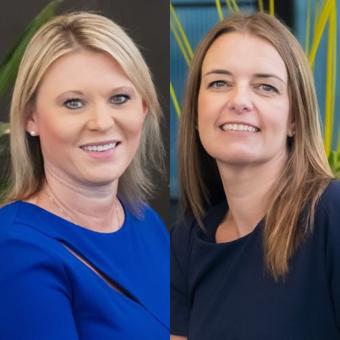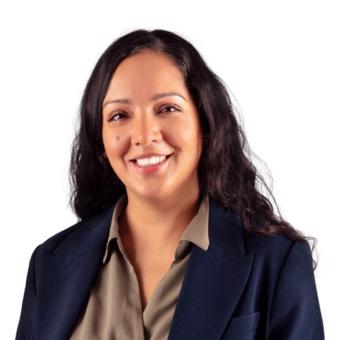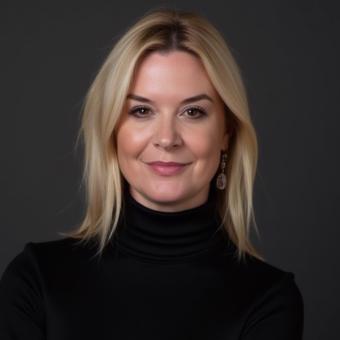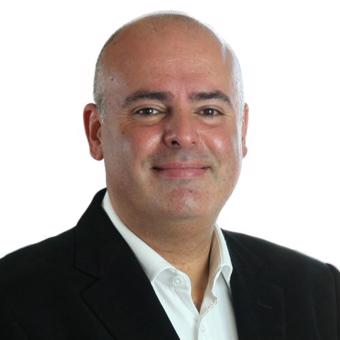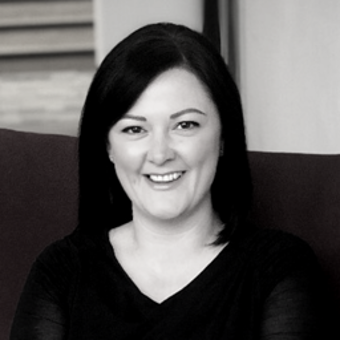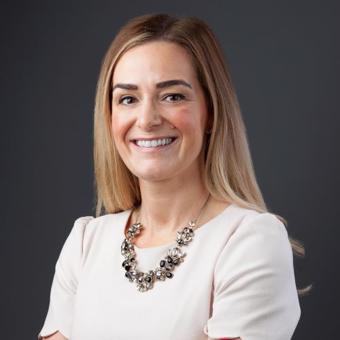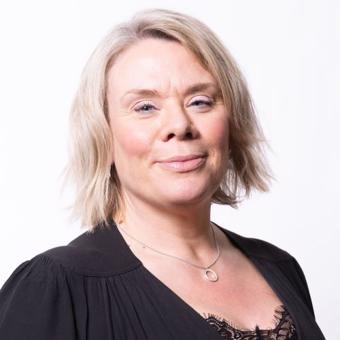Martin Finnegan, partner and chief commercial officer, tells The Brief about his plans for the corporate and commercial firm he and two executive directors lead, including opportunities for both consultant and employed solicitors, and how being yourself is the key to standing out in a competitive field.
Martin Finnegan is a corporate partner and chief commercial officer at Punter Southall Law, an ABS firm that is part of a group with its origins in actuarial consultancy, which was established in 1988 and has since branched out into broader financial and retirement services, employee benefits and legal analytics.
Punter Southall Law was established in 2019, into which Finnegan integrated his boutique City firm Causeway Law in 2020.
At that point the firm consisted of around a dozen lawyers. It now numbers 21 fee earners, with plans to grow to 50 within 24 months.
Punter Southall Law’s clients consist predominantly of institutional and owner-managed businesses in the corporate mid-market, a highly competitive space Finnegan describes as “certainly not under-lawyered”. Its current practice areas are corporate, financial services, commercial litigation, employment, regulatory and compliance, technology and data protection.
The firm is the process of making what will be significant lateral hires in commercial litigation and corporate, and plans to add capabilities in intellectual property, real estate and tax. It is also looking to consolidate its existing capabilities, particularly in financial services.
Career history
Oldham-born Finnegan had initially intended to study Town Planning at university but, after achieving better-than-expected A level results, decided on a change of direction and, following a year out, went on to study law at Durham University, before taking his LPC at the College of Law in York.
In 1994 he secured a training contract at the Chancery Lane firm Edward Lewis, working with the England rugby union legend Brian Moore. As a trainee he was involved in a lot of disputes work but, “When I thought about what I wanted to be doing in ten years’ time it just felt as though litigation wasn’t my natural bent.
“Corporate, though, is about putting things together. Most of the time it’s constructive.
The people you are working with might be under a lot of stress but you know that what you have done for them has been positive. You are helping them to grow their business, or to realise the best price when selling it.
From Edward Lewis he went on to work at McGrigors (now Pinsent Masons), where he was head of capital markets, and Nabarro (now CMS), where he was co-head of capital markets.
He then went on to found Causeway Law with his wife Claire Thorogood, an employment law specialist, and with the encouragement and support of one of his largest clients (now a client of Punter Southall Law). While still involved in capital markets work, he now focuses predominantly on working with privately owned companies.
After running Causeway Law for nine years he integrated it into Punter Southall Law, to help “get to the next level” with the backing of a larger organisation.
The decision to join the Punter Southall group in particular was, Finnegan says, largely based on the confidence he had in the group’s founder, Jonathan Punter and Group Managing Director Kenneth McKelvey. “Meeting Jonathan and Kenneth was the real clincher,” he explains.
“They understand the law and commercial lawyers and proved themselves to be people of their word during our discussions.”
Hybrid model
Punter Southall Law operates a hybrid consultancy/employed model, with lawyers able to join the team on either basis. Some of the firm’s highest-billing lawyers are employed, Finnegan among them.
The firm, which is actively recruiting, is looking for senior lawyers with practices billing in the region of £500,000-plus, for whom he believes Punter Southall Law offers a compelling alternative.
If you are billing £500,000 at a top 50 law firm you’re probably not making more than £150,000. Put that into a consulting model and you’re making £350,000.
The consultancy model also allows for greater flexibility than a traditional firm in terms of hiring and pursuing business opportunities, Finnegan says: “We can hire consultants adjacent to the law, meaning not all have to be practice certificate holding solicitors.
“I myself am a hybrid beast in that I’m a non-executive director of a longstanding client and manage its office of General Counsel through Punter Southall Law, which works brilliantly for the client and us. Not every traditional firm is agile enough to accommodate such modern day practice management, but Jonathan and Kenneth got it straight away, they don’t see us as a law firm but as a business first; they’re incredibly entrepreneurial”.
White label
Teams might also be able to join Punter Southall Law on a “white label” basis, meaning that boutique businesses could operate within, and with the support of, the firm while retaining their existing brand identity.
Finnegan explains, “We don’t just want to bolt people on but one of our offerings, which very much has to be for the right team, is to say to a team who are thinking about spinning out from a firm and setting up on their own, ‘Do you really want the headache of meeting the significant SRA and wider statutory obligations as well as ensuring consistent operational success?’
In my experience, people who run successful teams just like doing the job and don’t want the often time-consuming issues and management headaches that come with running a firm.
Silo-busting
The legal sector has historically been prone to departmental silos working in isolation from one another. So, how does a firm which has a large number of consultants and allows teams to operate as different brands counter this?
“It’s something we are conscious of,” Finnegan says. “A lot of consultancy firms are short on real estate but we are the opposite: one of our distinguishing features is our spacious, flagship offices on The Strand.
“It’s an open-plan environment and the teams are very much integrated. We try to operate like a traditional firm in the sense that we have monthly team meetings, a monthly partner forum and quarterly drinks.
“We also have some junior lawyers, and among the consultants there are quite a lot of teams that work together. For example, at the moment I’m working with one of the litigators on a crypto currency matter for one of my clients.”
The firm is aiming for a critical mass of around 50 lawyers because, he says, “We see that as very manageable, with the right profitability while still being very integrated.”
The next generation
Although Punter Southall Law does not yet have an annual programme of training contracts it employs a team of junior lawyers to support its consultants. It also supported an Open University graduate through to qualification as one of the first wave of SQE trainees.
Reflecting on the situation facing would-be trainees and junior lawyers, Finnegan acknowledges the environment is more competitive than ever but says he would never try to discourage people from pursuing a career in the law. However, he says you do need to put significant work into securing opportunities – particularly on vacation placements - and then make sure you make an impression at interview.
“Law firms don’t like to put it like this but a lot of the candidates that apply would be good enough to do the job,” he says. “To stand out I would recommend being true to yourself and, when you get an interview, to go for it.
It’s hard. To get those interviews you’ve really got to put in the applications, which can be a soul-destroying process when the odds are against you even when you’re applying from a good university.
“But this career requires resilience at every level so it’s important that those seeking a career in the law show that they have this quality at the outset.
“I made 100+ applications for training contracts in the early 90s. I had a good degree from Durham but law firms had been hit incredibly hard by the early 90s recession and had significantly reduced their numbers of trainees.
“It was a demoralising experience and I’ll always be grateful to the likes of Brian Moore and Edward Lewis for the door they opened for me. So my advice to those wanting to qualify now is to keep going and take every opportunity you’re offered and, once you’re in the process, be yourself, be honest and give yourself the best shot at it.”
Visit
Connect with Martin Finnegan via LinkedIn

